Partners presentation
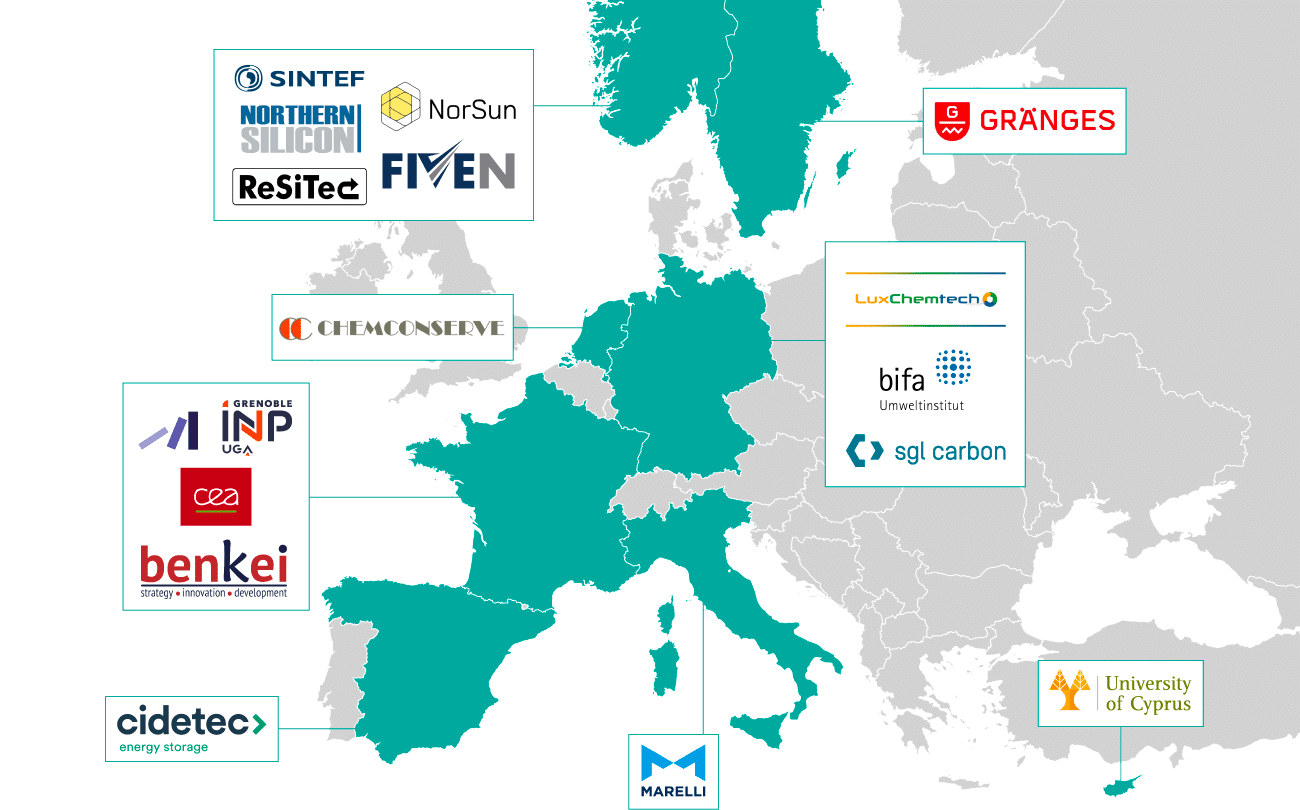

SINTEF
SINTEF is a broadly based, multidisciplinary research foundation that possesses international top-level expertise in technology, medicine and the social sciences. Our aim is to become the most renowned contract research institution in Europe. SINTEF is an independent, non-commercial organisation. The contract research covers all scientific and technical areas, and ranges from fundamental research through applied research to commercialization of results into new products. The profits of our contract research projects are invested in new research, scientific equipment and competence development. SINTEF has a close collaboration with the Norwegian University of Science and Technology (NTNU) in Trondheim and the University of Oslo (UiO).
Within the ICARUS project, SINTEF Industry will be the project coordinator. In addition, SINTEF will bring to the project the know-how on silicon crystallisation of mono-Si and mc-Si, wafer sawing, material refining and processing techniques, synthesis and characterization of batteries and electrical cells. SINTEF will take part in different technical WP’s, including WP1 and WP5 as WP leader on waste inventory and flow-sheeting, and product prototype demonstration, respectively. Furthermore, SINTEF will support industrial activities in WP2-WP with R&D, contribute to exploitation in WP6 and disseminate in WP7.
Senior Business Developer Dr. Martin P. Bellmann, who holds a PhD-degree in Metallurgy of Nonferrous Metals and High-Pure Materials, is the project coordinator. He has a long experience as a project manager and has led central activities in several national and international R&D projects. Currently he is leading the H2020 project, Eco Solar, where SINTEF is coordinator. He has background in crystalline silicon technology and photovoltaics. He represents Norway in the European Network of Crystal Growth (ENCG), and he is author and co-author of more than 20 SCI papers.
Research Scientist Dr. Birgit Ryningen, with the PV-Silicon group at SINTEF, holds an MSc in Chemistry and a PhD in Materials Science from NTNU. She has worked within the field of PV silicon for 14 years, including wafering and crystallisation. She also has experience with circular economy issues from projects on silicon kerf recycling and waste valorisation in the metallurgical industry. She is author and co-author of more than 20 journal papers and conference contributions.

Northern Silicon (NOSI)
Northern Silicon (NOSI) has developed a process for producing high grade silicon metal from quartz and silicon metal that can be used in solar cell production. NOSI plans to build a full-scale plant in Norway and license its technology and knowhow to partners in other countries. The process has several advantages compared to establish solutions in the market today:
- Substantially less emissions of CO2 (long term goal to produce CO2 neutral silicon metal by using carbon black from biogas)
- Reduced operational costs as the process requires substantially less energy to operate
- Lower investment costs and footprint
The process has 3 main steps: (1) pre-treatment (2) smelting (3) purification. The process feed may be fines (such as sand and kerf), lumpy quartz and Si metal. The process should be well suited to treat Kerf / secondary silicon from solar panels, and NOSI believes the use of such input will improve its process’ cost and environmental advantage, as the kerf may reduce the energy consumed (it’s already metallic) to produce the silicon metal.
Artan Shyti, PhD is the CTO Northern Silicon. He has a PhD (Italy) in Production of Solar Grade Silicon by direct metallurgical route. He is a process metallurgist and plant manager Ferro Silicon plants in Albania and Italy. He developed the N.E.D Silicon process and was responsible for pilot testing of N.E.D. process (now NOSI process). He finally is a consultant to various ferro silicon and silicon plants related to process optimisation and engineering.
Mario Pesaresi is the main owner of N.E.D. Silicon and Echidna Group. He developed and later sold leasing company and bank, he is one of the larger owner of solar energy production facilities in Italy. He is also the facilitator of more than 100 start-ups in Italy and works also on the marketing and sales of raw material in connection with NOSI.

RESITEC
ReSiTec is specialized in handling, recovery and treatment of powders, liquids and suspensions. Their services range from pre-studies, testing and verification in pilot to final project execution. ReSiTec is an R&D company specializing in recovery of valuable elements (powders in wet and dry phase).
Knut Mørk, Managing Director, holds a MSc. Processing Metallurgy from NTNU in Trondheim. Knut has a wide national and international and managerial experience from Elkem, Eramet and Metallkraft. As CTO in Metallkraft, he was responsible for development, engineering and construction of the production plants in China and Singapore
Dr. Mads Heintz, Project Engineer, is a project engineer at ReSiTec AS. He has several years of experience withing recycling of Si powders at ReSiTec AS. He obtained both his Master degree and PhD within materials science from NTNU, where his area of expertise was solution based fabrication of functional materials.
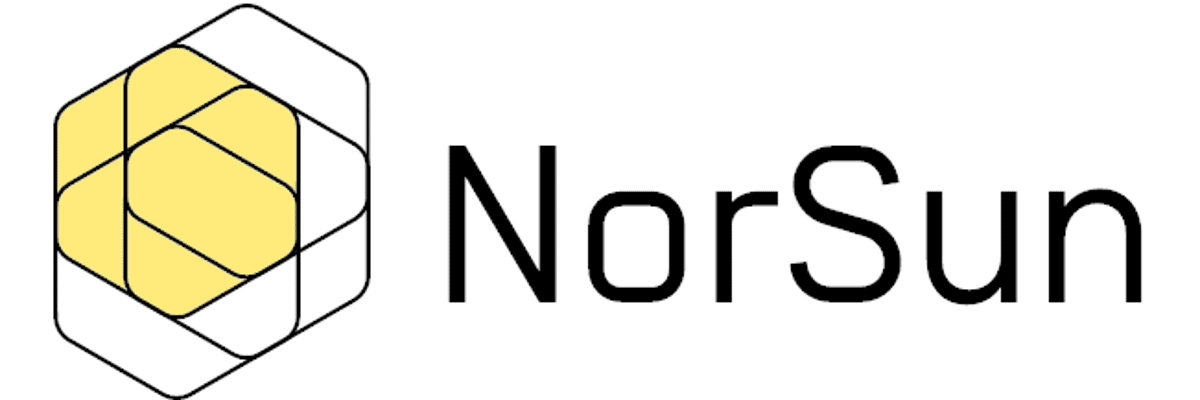
NORSUN
NORSUN is a leading-edge producer of monocrystalline n-type silicon ingots and wafers for high-end PV applications. NORSUN is a technology driven company focusing on a series of step-change cost reduction and performance increasing projects to meet the future demand of high-end wafer customers.
NorSun’s strategic objective is to be the preeminent provider of monocrystalline wafers for the global solar energy industry. We want our company and products to symbolize world class leadership in product performance, quality, technological innovation and lasting reliability within the industry domain in which we operate. The production unit in Årdal (Norway) was constructed in 2007 and currently employs 233 people. The annual production capacity at the company’s production facilities exceeds 250 MWp and will be to nearly 3GWp in 2025.
Within ICARUS, NorSun will deliver required silicon, silica and graphite waste products in WP2 and WP4. In WP2 they will develop separation techniques for silica/ silicon waste products. In WP5, NorSun will test recovered secondary silicon feedstock as wafer material and contribute to exploitation and the techno-economic assessment in WP6.
Øyvind Nielsen, VP R&D, has a PhD in materials science, and was previously working for SINTEF Materials and Chemistry.
Gyou Seong Park, Senior Research Scientist, has an MSc, and previously worked for LG Siltron, SiNor, and REC.
Lasse Norheim is a Senior Research Engineer, and previously worked for REC.

ROSI
ROSI SAS is a French start-up, which offers a complete solution to recycle and revalorize several industrial waste streams during the PV production value chain, including liquid additives from wafer sawing process, PV-grade Silicon from kerf loss, and reconditioned Silicon granules from FBR Silicon fines. Since its foundation in November 2017, ROSI has been supported by SATT and BPI/French Tech in France, as by EIT RawMaterials in Europe, by its disruptive technology to render PV production value chain a circular economy.
Dr. Yun LUO holds an engineering degree from Ecole Polytechnique (FR), and a PhD degree from Max-Planck Institute (DE). Dr Luo has more than 10 years industrial experience in PV, including technology manager in Swiss PV equipment producer Meyer Burger Technology group where led the product developments of several key technologies along PV production value chain, and founder of Swiss start-up Plus MAT who developed the technologies to recycle Silicon from SiC-abrasive wafer sawing.
Daniel BAJOLET, CTO, former VP of Rhodia (FR) specialized in technology, industrialization, and supply chain of Silicon and Silicone related business. Before becoming one of the founders of ROSI, Mr. Bajolet had realized several corporations merge activities of world-leading PV companies as key person.
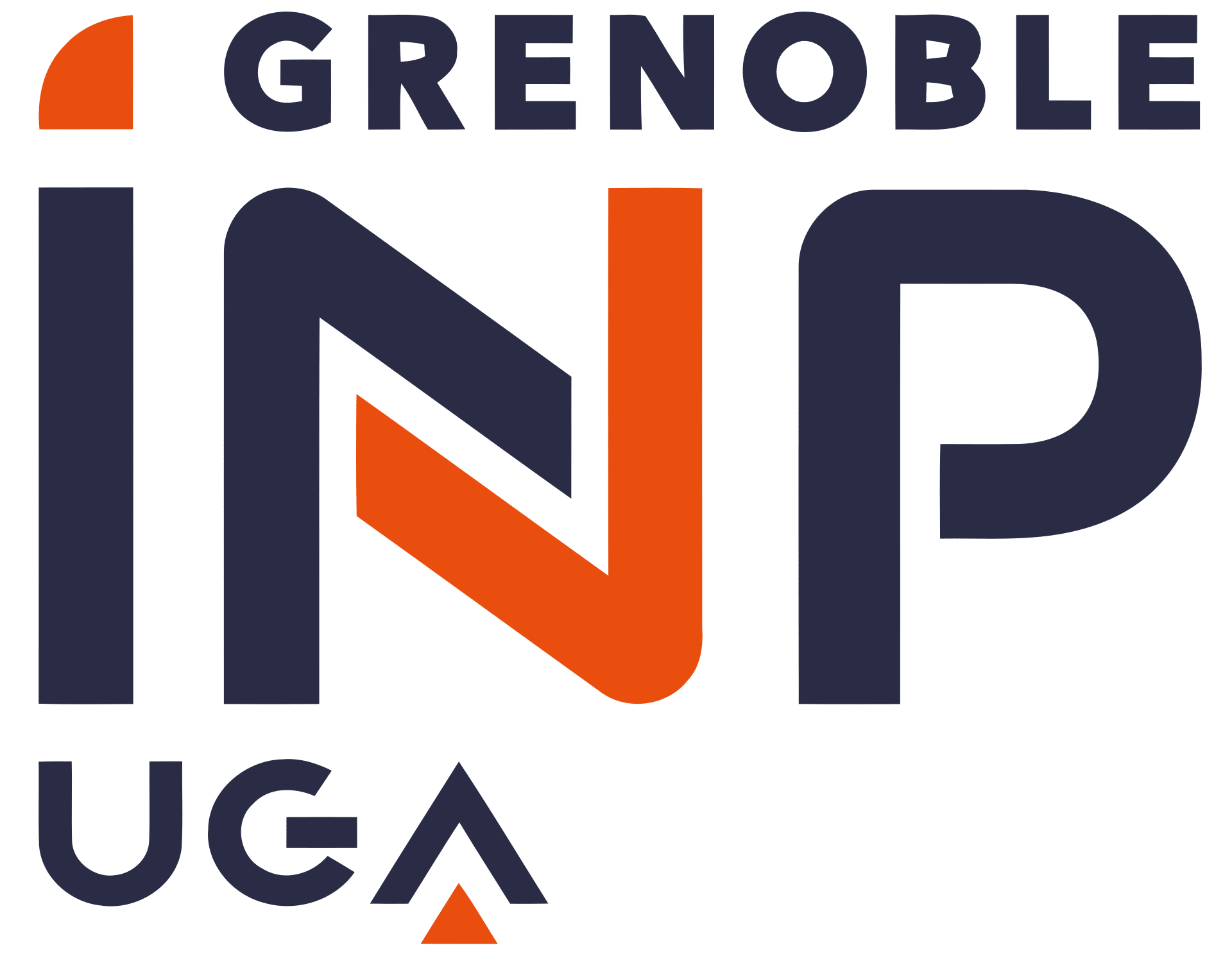
INSTITUT POLYTECHNIQUE DE GRENOBLE
Institut Polytechnique de Grenoble (IPG) is the no. 1 French university in 11 subjects (including Metallurgical Engineering and Environmental Science & Engineering) according to the Global Shanghai Ranking. With its 230 collaborators, SIMaP laboratory (“Science et Ingénierie des Matériaux et Procédés”) is a researcher structure dedicated to the development of novel Processes for Innovative and High Performance Materials. Main applications lie in Metallurgy and Alloys, Additive Manufacturing, Architectured Materials, Energy (Solar, Nuclear).
SIMaP has been extensively involved in the purification and crystallization development of the Silicon Metallurgy for the last two decades. Technologies developed at SIMaP have been regularly transferred to industry: TitaCreuset (cold crucible recycling of Rare Metals), Acerde (on-demand CVD coatings), Emix (Silicon Cold Crucible Continuous Casting), Photosil (Silicon purification by thermal plasma) are beneficiating from SIMaP expertise.
Dr. Guy CHICHIGNOUD, PhD, CNRS Researcher, holds an engineering degree since 2003, and a PhD degree in 2006, both from Grenoble INP France. Dr. Chichignoud joined the CNRS in 2007 as permanent researcher at the SIMaP laboratory. As an expert in the field of silicon metallurgy, Guy has extensive knowledge of relevant technology and equipment in the PV-Si industry (purification, crystallization). With more than 20 peer-reviewed papers and 12 invited talks in this domain, he supervised 6 PhDs (4 on Silicon purification, 2 on Silicon crystallization).
Deputy head of the EPM research group, he has been the CNRS project leader for several national (SolarNanoCrystal, IsoPEM, ANR: PICKS, CRYSALID, BRESILAR) and European (KIC) industry-oriented collaborative projects.
Dr. Annie GAGNOUD, PhD, is the Research Director. After receiving a PhD in Mechanics from the University of Grenoble in 1986, A. Gagnoud got a CNRS permanent position in Grenoble University, where she developed a research activity on the numerical modeling of coupled phenomena for inductive processes of elaboration. With more than 70 papers and 80 communications in international conferences, she developed 5 software and supervised 14 PhD. Head of a 40 staffs Electromagnetic Processes of Materials team, A. Gagnoud has been involved in 2 European projects and has coordinates around 30 industrial projects.

CEA
CEA (French Alternative Energies and Atomic Energy Commission) is a public body established in 1945. A leader in research, development and innovation, CEA is active in four main areas: low-carbon energies, defense and security, information technologies and health technologies. In each of these fields, CEA maintains a cross-disciplinary culture of engineers and researchers, building on the synergies between fundamental and technological research.
CEA will be involved in the project through its Liten institute (Laboratory of Innovation for New Energy Technology and Nanomaterials), which is devoted to the development of innovative technologies for the energy transition. CEA Liten has a staff of 950 people, an annual budget of 130 million euros, and puts in place every year 400 research contracts with industrial partners from a wide range of market segments: energy, land transportation, aerospace, construction, civil engineering, environmental, and IT industries, amongst others. Intellectual property forms a major part of CEA Liten activities, with a portfolio of 1,500 international patents. More than 200 articles are published every year in peer reviewed scientific journals.
CEA/LITEN is a major contributor to the French Solar Energy Research Centre, INES, located on the Savoie-Technolac innovation campus. INES researchers (more than 350 people so far) address all aspects of Solar Energy: PV conversion (from Si or Organic material to modules) – PV systems – Solar Thermal systems – Building integration of PV and solar systems thermal – Energy-efficient buildings. The CEA/INES in a general manner has the culture, the expertise and know-how in the technological field of solar cells, covering all the value chain from Si production up to the development of innovative cells and modules.
Virginie Brizé has a PhD degree in materials chemistry from the University of Tours, with an industrial scholarship from ST Microelectronics. She worked for almost 10 years in the field of thin films for microelectronic devices. She joined CEA-INES in 2010 to start new activities on Silicon thick-layer by liquid phase epitaxy and Si-kerf refining and developed new material for releasing coating for solar crucible.
Claire Agraffeil has a PhD in materials Science and process engineering delivered by the National Polytechnique Institute of Grenoble. She has worked at CEA-LETI as researcher and project manager for 7 years in process development and materials characterization in the field of microelectronics. She joined CEA-INES in 2017 as project manager in charge of international project building and management
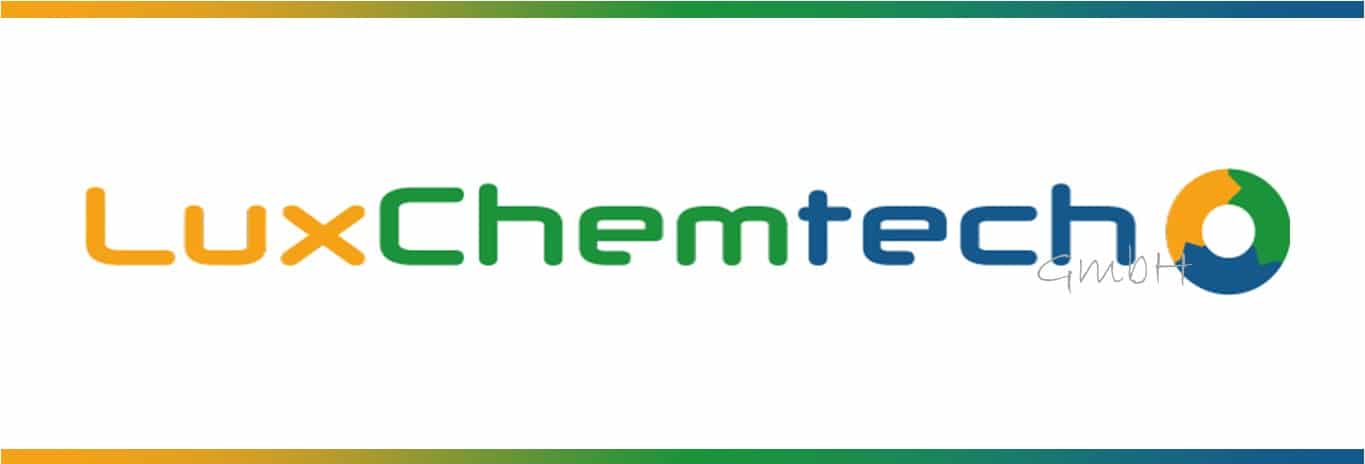
LuxChemTech
Since 2006 W. Palitzsch and I. Röver work on the recycling of valuable metals with strategic importance from High Tech and Green Tech waste. From their former companies Loser Chemie GmbH and Solarworld AG, they generated a very good experience in PV recycling for production and EOL scrap. They have knowledge about hydrometallurgical extraction of semiconductor layers and in construction of pilot plants. LuxChemtech develops and produces technologies and equipment for the recovery of silicon scrap and other special waste, for example most types of PV modules. High-tech waste requires high-tech recycling. We strive to follow the Zero Waste concept wherever possible and strive for a true circular economy, which has already been achieved in several cases. The company uses mechanical and chemical processes.
Dr. Wolfram Palitzsch studied chemistry between 1988 and 1993 on the TH Leuna-Merseburg. His diploma thesis dealt with organometallic compounds of the elements vanadium, niobium and tantalum. In 1998 he completed his PhD on the subject of novel transition metal-silicon compounds and graduated on the Technical University Bergakademie Freiberg. Between 1998 and 2000, he was a researcher on the Institute for Inorganic Chemistry on the University in Freiberg. Since 2000, he works as CTO at Loser Chemie GmbH. He published nearly 20 articles in peer-reviewed or refereed journals respectively books, and since 2007 he has been a speaker on more than 30 national and international conferences (e.g. USA, Korea, Japan, Italy, Belgium and France). He submitted 7 patents. In 2015, the company won the Saxon Environmental Award for his method of recycling PV scrap. 2016 he was the winner of the IQ innovation award. Finally, in 2019 he founded together with Dr. Ingo Röver the LuxChemtech GmbH, which took over the assets of Loser Chemie GmbH.
Ingo Röver, chemist, PhD, studied between 1987 and 1992 chemistry on the TH Leuna-Merseburg. His diploma thesis dealt with basic sulfats of iron, aluminum and alkali metals. In 2002, he completed his PhD on the subject of catalytic processes in the system of chlorosilanes and graduated on the Technical University Bergakademie Freiberg. Between 2002 and 2004, he was a researcher on the Institute for Inorganic Chemistry on the University in Freiberg. From 2004 to 2017, he worked in different technical managing positions at Solarworld AG. Between 2017 and 2019, he worked as managing director of Fresitec GmbH and Loser Chemie GmbH. In 2019, he became founder and in 2020 CEO of LuxChemtech GmbH, together with Dr. Wolfram Palitzsch.
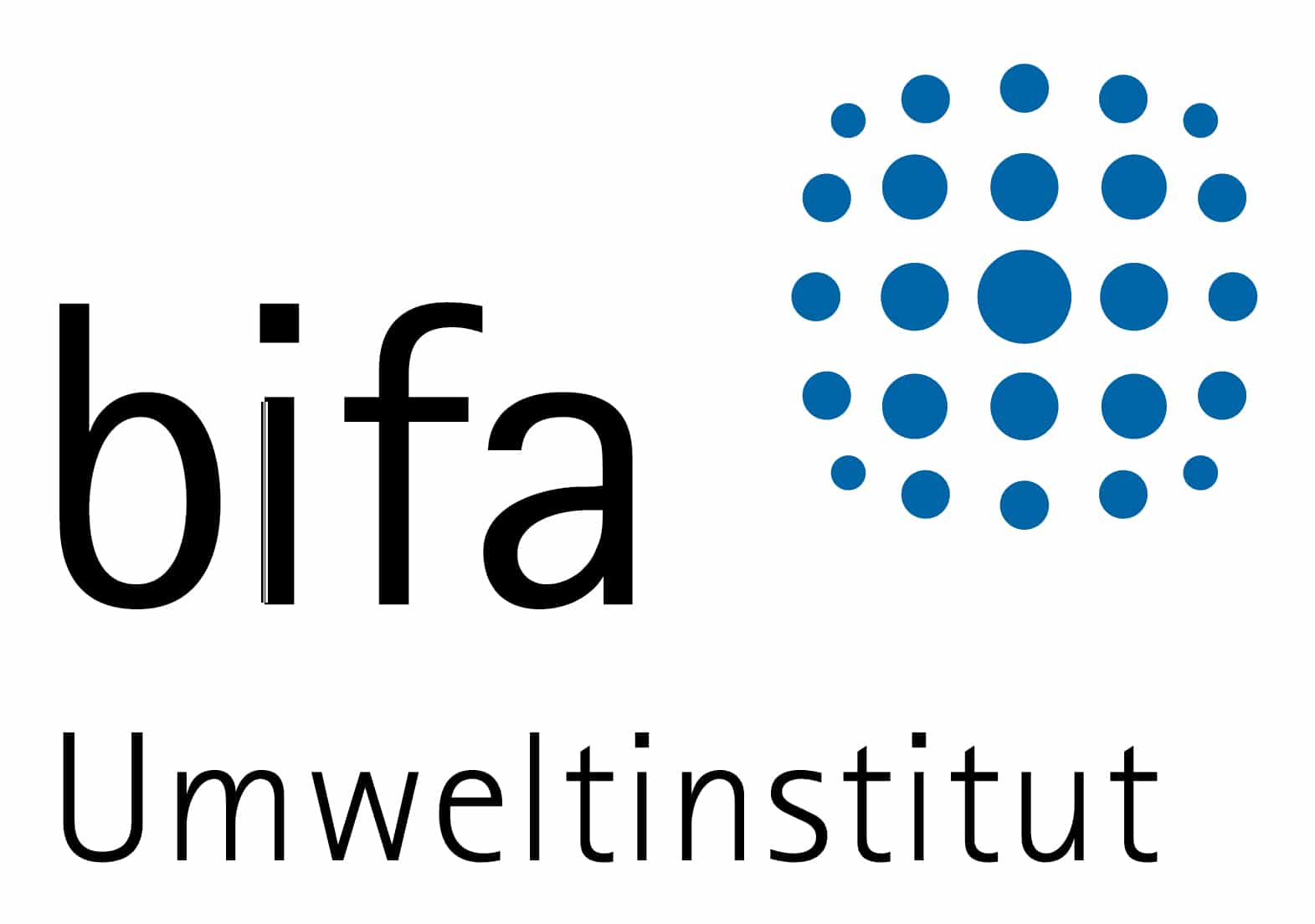
BIFA
bifa environmental institute GmbH (bifa) is an application-oriented environmental development and consulting institute located in Augsburg, Germany. We offer a wide range of services around environmental technologies. 40 employees develop individual solutions for national and international customers from all industries, associations and public authorities. bifa was founded in 1991. Our shareholders are the Free State of Bavaria (75%), the City of Augsburg (12.5%) and the Chamber of Commerce and Industry for Swabia (12.5%). The annual turnover is around 3 million Euro in the year 2012.
From drawing up various cycle assessments (LCA) and eco efficiency analysis studies (LCA with additional cost calculation) bifa owns a wealth of experience (> 15 years) which allows a sound, efficient and professional handling of the investigation. Of particular advantage is that besides the LCA-knowledge bifa has another focus of work in the engineering field. We can therefore build on a combination of LCA and technical expertise for the proposed work. Furthermore, bifa has tremendous experiences in the field of electronic and especially PV scrap treatment and recycling, which allows a professional investigation of recycling processes and crediting of environmental advantages from the high-quality recycling.
bifa takes on the independent expert role for the execution of the eco efficiency analysis.
Dr. Karsten Wambach is project manager at bifa since 2014. He currently studies PV waste aspects for IRENA, recycling concepts for waste to energy plant ashes, does consultancy of SMEs on energy and resource efficiency funded by the German resource efficiency agency (DEMEA). Prior to this activity, he worked as a freelance consultant on sustainable productions, environmental technology and waste concepts. Support of companies in sustainable production and recycling (KPIs, efficient material use, energy efficiency, LCA, training of personnel), CSR, stewardship programs, standardisation, R&D proposals, technical development of PV recycling plants (construction box solutions). As managing director of Sunicon, a subsidiary of Solarworld (2001-2012), he built up one of the biggest recycling companies for solar silicon dealing from primary silicon treatment to solar module recycling including upgrading of metallurgical silicon (research, business and strategic development, global sales and marketing of silicon and specialities), R&D (reduction of toxicity, new etching methods and recipes, metal, C, P and B removal, pyro-metallurgical treatment).
Matthias Seitz, researcher, works at bifa since 2009. He graduated at the University of Augsburg in Business Administration focusing on environmental management, business information systems and optimization. He has already comprehensively dealt with LCAs, eco-efficiency analysis, as well as material and energy flow balances for industrial and public sector customers. From 2011 to 2013, he was instrumental in the creation of a comparative eco-efficiency analysis of photovoltaics. He is familiar with both the current production and recycling techniques for wafer-based and thin-film technologies and has insight into the underlying material and energy flow systems. At bifa, Matthias also deals with the economic issues within LCAs and the economic considerations in process developments, in particular for material efficiency and recycling projects. In total he has 10 years of professional work experience.
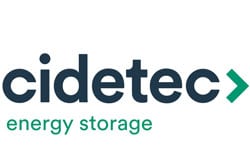
CIDETEC
CIDETEC is a private organization for applied research founded in 1997. Located in the city of Donostia-San Sebastián, CIDETEC is comprised of three international technological reference institutes in Energy Storage, Surface engineering and Nanomedicine. CIDETEC Energy Storage is specialised in creating new battery technologies according to specific challenges, and its ultimate transference to the industry. The institute has the capacity to develop complete products and processes and offers material validation, pilot manufacture, pack engineering and battery testing services.
CIDETEC overall workforce consists of 170 employees, 95% of whom are university graduates and 50% PhD holders. Its volume of activity came up to € 12.3M in 2017. CIDETEC Energy Storage involves up to 55 specialized researchers distributed into two technological units: Materials for Energy -38 researchers with a background of chemistry, electrochemistry and materials- and Systems Engineering -17 researchers, mainly electrical and mechanical engineers-. CIDETEC Energy Storage has an outstanding performance in EU funded projects, particularly belonging to the framework of EGVI. CIDETEC Energy Storage is also involved as an active player in several EU level platforms and associations such as EGVIA, EMIRI, ETIP-SNET (WG2 on Energy Storage) industrial associations, and EARPA, EERA or ALISTORE research platforms. Additionally, CIDETEC Energy Storage cooperates closely with the industry in the context of bilateral, direct contract research and product development projects, both at the National and International level.
The Materials for Energy Unit at CIDETEC will bring its know-how on Li-ion electrode formulations and coating processing, as well as cell design and testing. Thus, CIDETEC team will be focused on electrode formulation and processing optimization to manufacture coated anode electrodes based on the recovered/recycled graphite and silicon.
Iratxe de Meatza: Research Scientist (PhD Materials Science (Inorganics), University of the Basque Country). She has been focused on lithium batteries R6D (active materials, electrode formulations and processing, electrochemical characterization, and cell prototyping) for the past 12 years. She has participated in 11 EU projects (FP6, FP7 and H2020) and is co-author of more than 20 SCI papers (H-index = 13).
Dr. Aitor Eguia-Barrio received his Ph.D. degree in Material Sciences from Basque Country University in 2016. His Ph.D. thesis was dedicated to synthesis and characterization of new materials and their application as anodes for sodium ion batteries. He has more than 5 years of academic and industrial experience in R&D of sodium and lithium-ion batteries. In 2017, Dr. Eguia-Barrio joined CIDETEC as researcher and project manager in Li-ion batteries R&D. He is author of more than 5 scientific papers, participating in several national and international R&D projects.
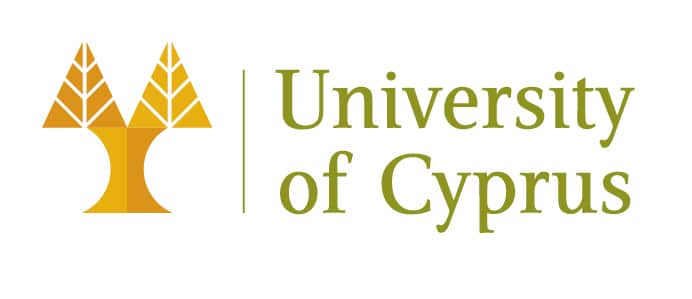
UNIVERSITY OF CYPRUS
The University of Cyprus (UCY), located in Nicosia, is a young (established in 1992), premier research institution of Cyprus recognized by the European University Association (EUA) for its research funding and successes in highly competitive Marie Curie and ERC programs. The Mechanical and Manufacturing Engineering (MME) Department, founded in 2002, has demonstrated significant high-quality research activities. Research in the Department is presently organized into the following areas of concentration— Manufacturing, Dynamic and Smart Systems, Energy, Biomedical Engineering, Computational Mechanics and Artificial Intelligence Technologies, Advanced Materials and Nanotechnology. The MME faculty has received more than 20 million € in more than 100 externally-funded competitive research grants and has been awarded, among others, ERC Starting Grant, Marie Curie Excellence Chairs, Marie Curie Transfer of Knowledge-Development Project, Marie Curie Excellence Team project etc. In ICARUS project, UCY team will work on the development of thermoelectric generators based on Si-kerf.
Theodora Kyratsi is a Professor in the Department of Mechanical and Manufacturing Engineering (MME) at the University of Cyprus. She has developed the Powder Technology Laboratory at the University of Cyprus (https://ucy.ac.cy/powdertechlab/) where the research activities are on materials for energy and environmental applications. Today, her research include synthesis of energy-related materials, thermoelectric materials/devices, nanomaterials and nanocomposites, powder technology – ball milling, consolidation techniques, additive manufacturing, and material optimization.
Ioannis (John) Giapintzakis is a Professor in the Department of Mechanical and Manufacturing Engineering at the University of Cyprus. His expertise is in the field of Experimental Materials Science/Physics, with particular emphasis on synthesis of TE thin film, bulk and nanostructured materials, their structural, chemical and morphological characterization and measurements of electrical, thermal and magnetic.
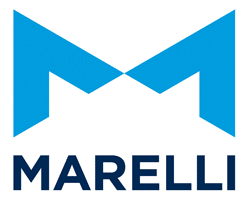
MAGNETI MARELLI
Magneti Marelli is an international Group committed to the design and production of hi-tech systems and components for the automotive sector. With more than 40 500 employees, 89 production units, 12 R&D Centres and 30 Application Centres, the Group has a presence in 19 countries and supplies all the most important car makers in Europe, North and South America and Asia. Magneti Marelli mission, as a worldwide automotive parts supplier, is to make its key technologies available to its final customers at an affordable price, by matching high quality and a competitive offer, technology and flexibility.
Magneti Marelli Exhaust develops and produces exhaust systems for motor vehicles using high quality, high performance technologies. Its product range includes systems for exhaust gas after-treatment (catalytic converters, particulate filter converters, SCR and NSC systems) and for engine noise attenuation. It is present with plants, development centers and application centers in Italy, Spain, Poland, Serbia, Argentina, U.S., South Africa, China, India, Turkey.
The Innovation department mission is focused on the breakdown of CO2 and pollution emissions through the development, integration and industrialization of lightweight solutions (new materials and key enabling processes) and innovative eco-technologies (heat recovery and after treatment).
Dr. Mauro Brignone has a Master of Science in Physics and a PhD in Chemistry and is responsible for the Innovation department in Magneti Marelli Exhaust. He worked for 14 years in FIAT Research Center on new materials and novel devices to reduce vehicles consumption and emissions.
He is expert in heat recovery systems, thermoelectric materials synthesis and characterization and the design and on-board integration of thermoelectric generators. Mauro is author of several publications and patents in the field of energy generation, thermoelectricity and photonics.
Dr. Emanuele Milani has a master in Material for Environment and Energy and a degree in Material Science. He has been working in Magneti Marelli Exhaust for 7 years in the innovation department and he is specialized in the CO2 emission reduction devices. He is expert in design and testing of heat recovery systems, also focusing on LCA and materials characterization. In his job activity, Emanuele has published papers and patents on the exhaust heat recovery system field.
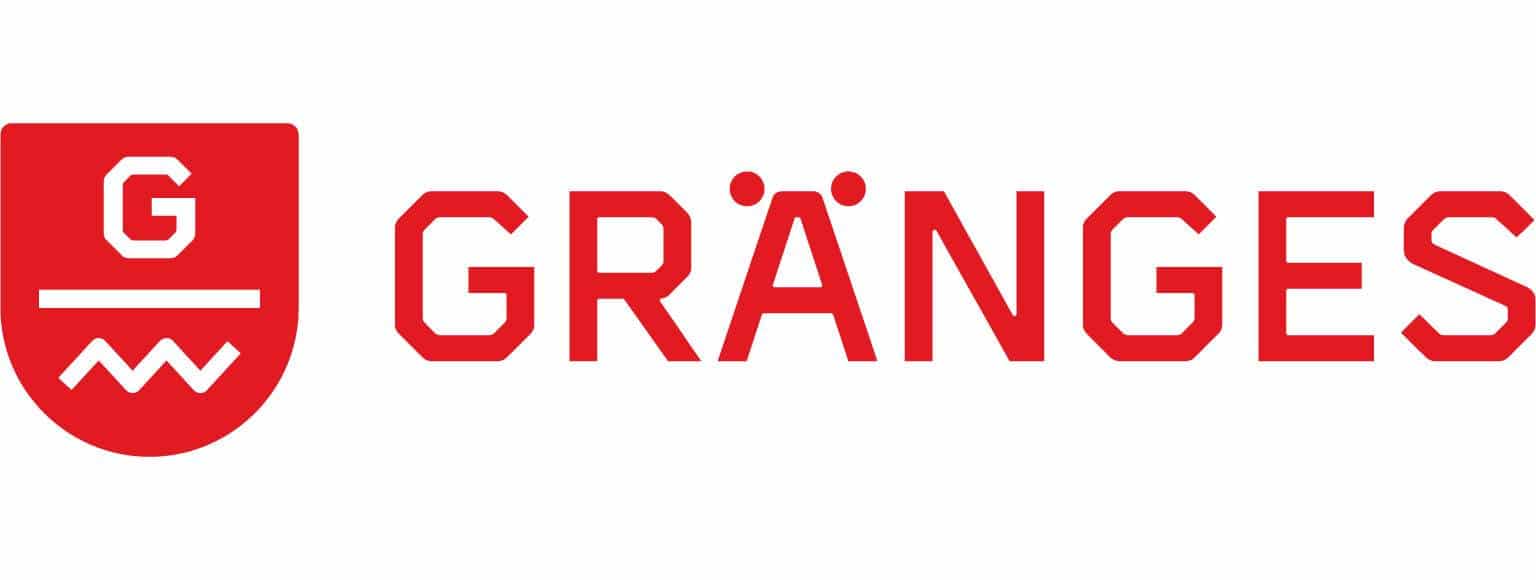
GRANGES
Gränges is a leading manufacturer of rolled aluminium for aluminium heat exchangers. Every second car produced in the world contains material manufactured by Gränges. Gränges focus on technology, manufacturing processes, and material properties and contribute to creating smaller, lighter and better designed heat exchangers that are more energy efficient and reduce environmental impact. Sustainability is an essential element of Gränges’ strategy and operations. The company strives to minimize the environmental impacts of its operations and recycling possibilities are increasingly important when developing new products and alloys. Research and innovation activities are focused on identifying integrated solutions that not only achieve the required technical specification, but also enable improved recycling rates.
Gränges’s R&I and production line in Sweden will be involved in the project. Silicon material and process procedures developed within the project will be tested in production, demonstrating the ability to produce high-quality products using recycled kerf as an alloying material.
Elin Lindfors, Technical Manager Casting, works for Gränges Finspång AB. She has an MSc from the Royal Institute of Technology in Stockholm, and is employed at Gränges since 2013.

SGL CARBON
The “new” SGL Carbon is a technology-based company with ~4800 employees, 32 sites, represented in over 100 countries, with a revenue of €1.3bn until 2022. SGL is one of the world’s leading manufacturers of carbon-based products. Our comprehensive portfolio ranges from carbon and graphite products to carbon fibers and composites. We focus on creating innovative solutions and value for our customers.
SGL will introduce recycled and refined graphite waste products from the project in their production value chain and provide analysis of the materials.
Dr. Stefan Fischer, currently responsible for the development of a Circular Economy program in Business Unit GMS, holds a PhD in Physics and is looking back on 10 years’ experience with graphite materials. He headed a (German) BMBF funded CRFP recycling project called MAIrecycling in 2012-2015.
Dr. Almut Schwenke holds a PhD in material science. She started at SGL in 2016 and is working on SGL’s next generation anode material for lithium-ion batteries.
Dr. Thomas Metzinger holds a PhD in Chemistry, and is heading SGLs application and technology development for fine grain graphites. He has 27 years experience with Fine Grain Graphite materials.

CHEMCON
ChemConserve BV is an entrepreneurial Dutch SME active in the commercialization of technologies in the field of recycling and critical raw materials, using industrial waste, end-of-life products and other critical raw materials. The company, based in Amsterdam, was established in 2012, and builds forth on the know-how and technology initially developed in its predecessor Deka Holding, which it consecutively further developed.
CHEM in WP6 is responsible for identifying and developing the exploitation potential of the recycling technologies, realizing an appropriate commercialization structure and negotiate exploitation agreements.
In WP7 CHEM is co-responsible for the industry stakeholder workshop, the development of dissemination material on the project and assists with the development of a documentary on the project and results of commercial interest.
Marco Pieterse MSc from the Wageningen University, is entrepreneur and MD of CHEM, senior venture and business development and technology transfer professional with academic background and international experience in early stage (clean technology) companies. In the rare earth recovery project REEcover (H2020 funded), he is responsible for the business case development and commercialization of the technology. He has working experience with (among others) venture capital company Gilde Investments, the World Bank, Sara Lee DE and DHV Consultants. He is also experienced in technology transfer for among others the Energy Research Centre (ECN, establishment of the Solar Academy, sale of spin out fuel cell company InDEC to Bayer), TNO, NIOZ, and multiple early-stage companies. Well networked in the venture capital, technology transfer and the cleantech sectors.
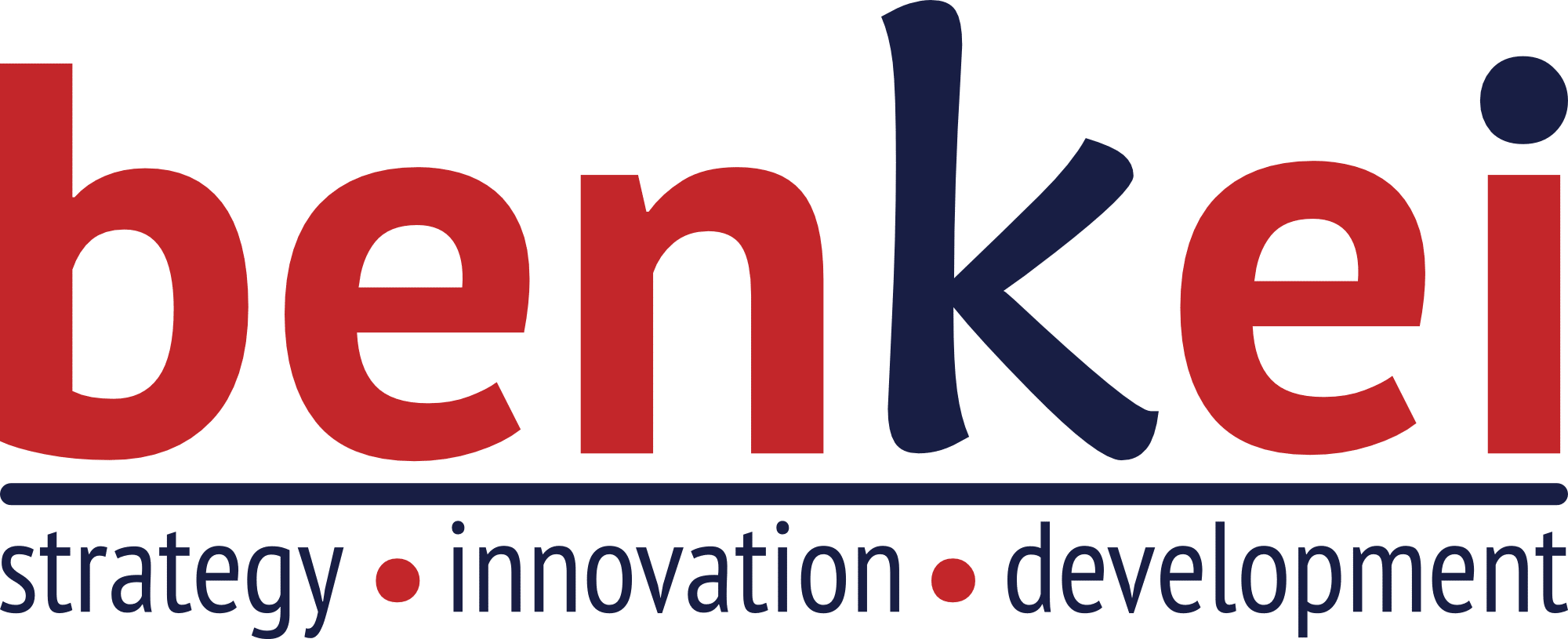
BENKEI
Benkei assists its clients, both public and private, in the definition, implementation and evaluation of their innovation strategy. We support every client involved in innovation, technological or not: those who innovate as well as those who help innovators and wish to develop original approaches. Benkei favours co-development approaches and long-lasting collaborations, through missions specifically designed for our clients. Our business model is based on a complete offer, from innovation strategy definition to development strategy, through formations, ideas generation, project engineering, market studies and going from a project to a product/service.
Benkei is a member and administrator of the French Association of Innovation Consultants, the main representative association of this sector in France. Benkei is active on the working groups on Collaborative Innovation, Marketing and Innovation Strategy. Benkei is also a founding member of the EAIC, the European Association of Innovation Consultants.
Philippe Lenain (Master degree with a specialization in management of innovative projects) has a 15-year experience in the coordination of European and national collaborative research projects for companies/RTDs of different size and in several technological domains (nanomaterials, rail transport, cobotic…). He previously worked for different structures, such as SMEs, Chamber of Commerce and Industry and a European network.

FIVEN NORGE
Fiven is clearly established as the worldwide leader in the business of silicon carbide grains and powders. FIVEN consists of two production facilities in Norway, one located in Lillesand and the other in Eydehavn, Norway. The plant in Eydehavn was founded by Sam Eyde more than 100 years ago and has produced silicon carbide (SiC) most of this time. Together with the operation in Lillesand that was built by the Norton company about 50 years ago, the two plants today employ about 250 people, produce 25 000 tons of silicon carbide material with a dedicated R&D team of about 10 people is located next door to the production facilities.
During the last decade a strong effort has been made in Norway on creating new, sustainable silicon carbide production methods. Typically, such methods are based on recycling of materials and circular economy principles. Among the new raw materials tested are various biocarbon materials (with zero CO2-footprint) as well as recycled waste from the solar industry. We are also investing heavily in a next generation Acheson furnace that will enable us to run full scale tests with new raw materials separated from the rest of our production system and with a minimal environmental footprint.
FIVEN will perform pilot-trials using recovered and purified silica waste products to produce SiC fines and grits in WP6.
Vidar Johannessen has a MSc in Geology. He joined SGCM (now FIVEN) in 2007 as an R&D engineer. He has been part of the development of specialty powders in Lillesand since the beginning and has built a strong experience on powder industrial processing. He has also been involved in many products tuning to fit with customers processing and application needs. He has then a deep understanding of SiC powders processing and sintering for various applications.
Oda Marie Ellefsen has a MSc in Materials Engineering. She joined FIVEN in 2018 as an R&D Project Manager.

